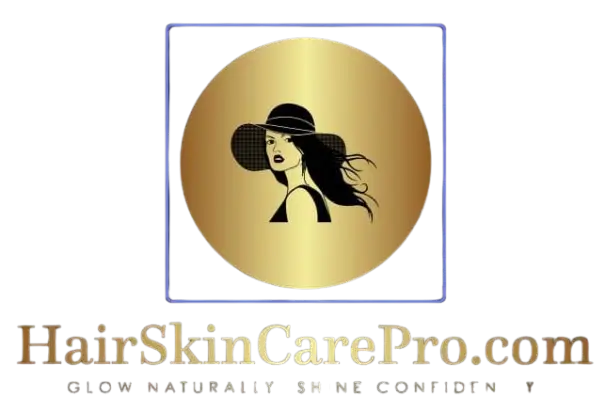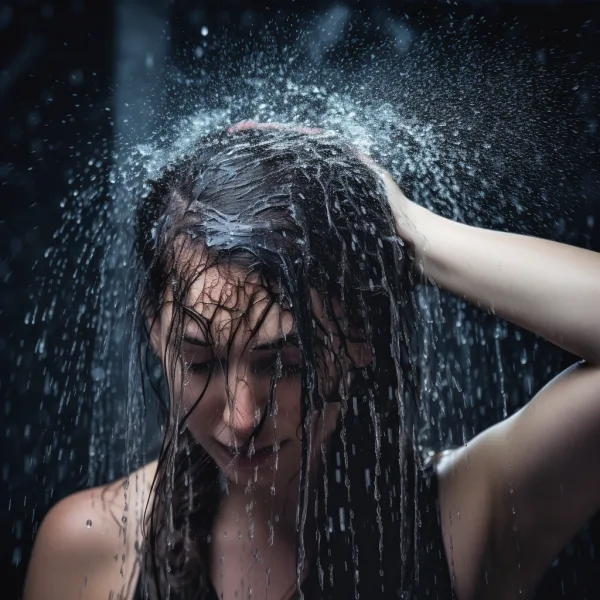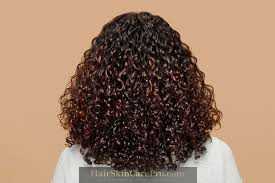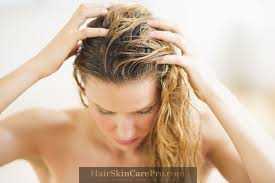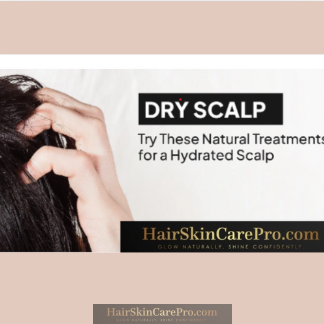How often should I wash my hair?
What are the signs of an unhealthy scalp?
How do I choose the right shampoo for my scalp type?
What causes dandruff and how can I treat it?
How can I tell if I have a dry scalp or dandruff?
Does diet affect scalp health?
How can I prevent hair loss?
What are the benefits of scalp massages?
How do I deal with an itchy scalp?
Can stress impact my scalp health?
What You Need to Know About Scalp health
How often should I wash my hair?
So the answer how often you should cleansereally depends on your hair type, the frequency with which you wash it and your day to day life. Here’s a rundown on how best to wash your hair:
Scalp Condition:
– Oily Scalp: If your scalp is oily, you should wash your hair daily or every other day.
Dry Scalp: Wash your hair 2 – 3 times a week to help the natural oils stay in your scalp health, giving it less of a chance to dry out
Hair Type:
Fine texture: Fine-hair types should wash their hair every day or every other day for best results.
– Coarse: Most coarse hair types can wash less frequent than thinner hair, 2–3 times per week the ideal.
Daily Habits:
Exercise: People who sweat heavily and/or exercise might need to wash their hair more often.
Less Active Routine: If your routine is not very active, you might not wash your hair very often.
How do I choose the right shampoo for my scalp type?
“ Use a gentle shampoo appropriate for the type of your scalp so as not to irritate and dry the scalp.
Conditioning:
—and always condition after you wash your hair so that it has moisture and movement.
Scalp Care:
Regular cleansing helps remove dirt, sweat and product residuekey factors in supporting a healthy scalp microbiome.
Environmental Factors: What They Do
— You should also consider environmental conditions, such as pollution and humidity, since they can affect how often your hair requires washing.
Scalp Exfoliation:
A weekly scrub may help slough off dead skin cells and support the health of the scalp.
Signs It Needs a Wash:
If your scalp is itchy or feels greasy, itchy, or smelly, then it’s time to wash your hair.
Listen to Your Scalp:
So tailor your wash routine to what your specific scalp needs, because, as we’ve established, everyone’s is different.
What are the signs of an unhealthy scalp?
These are the common signs of an unhealthy scalp which really help in identifying scalp issues as early as possible.
Itching:
Persistent itchiness may indicate dryness or irritation, or an underlying scalp condition, such as dandruff or psoriasis.
Flakiness:
Scalps that flake typically indicate dandruff, seborrheic dermatitis or dry skin issues.
Redness:
Allergies or psoriasis may cause the head to be covered with red, swollen patches.
Hair Loss:
Bald patches, baldness or hair thinning may point to a scalp condition like alopecia or a disease.
Soreness:
Infections such as folliculitis or tension from tight hairstyles can leave a sensitive, sore scalp.
Bumps or Pimples:
What are the bumps and pimples on my scalp? Bumps and pimples on your scalp could indicate folliculitis or clogged hair follicles.
Greasy Scalp:
Greasy scalp health is caused by overactive sebaceous glands that produce excessive oil.
Unpleasant Odor:
Scalp odour may be associated with bacterial or fungal infections.
Dryness:
Dry, tight-feeling scalps can be caused by environmental factors or harsh hair products or dehydration, Dr. Pereira said.
Changes in Hair Texture:
Hence an unhealthy scalp can affect the condition of your hair, making your hair texture brittle, dry, or prone to breakage.
Worst To Best Shampoo According To Your Scalp Type
Now that we’ve filtered through for the top shampoo for healthy scalps, let’s dive into the key details to keep in mind when shopping for shampoo. Here’s how to choose the right shampoo for your scalp type:
Identify Your Scalp Type:
Understand your scalp type (oily, dry or normal) so you can choose a shampoo in accordance with it.
Ingredients:
Look for shampoos with ingredients that are good for your scalp typetea tree oil for oily and aloe vera for dry.
How to Choose the Right Shampoo for Your Hair:
Avoid Aggressive Ingredients:
With that said, avoid irritating the scalp as much as possibleby steering clear of sulfates, parabens and artificial fragrances in your shampoos, for example.
Maintain pH Balance:
pH balancing shampoo for your scalp.
Choose Specialized Formulas:
Know your scalp issue or sensitivity and apply shampoos for you.
Trial and Monitor:
— Use another shampoo for a couple of weeks and see how your scalp and hair respond to it.
The recommendations of a dermatologist are trustworthy.
Use doctor-recommended shampoos for chronic scalp complaints.
Using Healthy and Natural Products:
Use organic or natural shampoos, and if you live in the location, something without toxic elements, you can use it.
echo “Describe Conditioning Properties:”;
“In the case of dry hair, you will want to use shampoos that are conditioning so you do not remove the moisture from your hair.
Consider the Benefits of Scalp Exfoliation:
Scalp exfoliating shampoos may aid in sloughing off dead skin cells and promote healthy scalp.
How can I tell if I have a dry scalp or dandruff?
Understanding the difference between a dry scalp and dandruff can help you choose the right treatments. Here is a full comparison:
Dry Scalp:
Symptoms: Scalp shows flaking, itching and dryness.
Causes: Low humidity, harsh hair products, high heat.
Treatments: Moisturizing shampoos and conditioners, shower using cooler water, scalp oil.
Dandruff:
Symptoms: Flaking and itchy skin, whitish or yellow scale and redness.
Reason: fungal growth, seborrheic dermatitis, oily scalp.
For oily dandruff: Treatment: Apply anti-dandruff shampoo, apply less oily hair products, ensure proper hygiene of the scalp.
Visual Contrasts:
Dandruff: Tiny, oily white flakes.
On dandruff: Larger, oilier, yellowish flakes.
Scalp Condition:
Dry Scalp: Dry scalps with tiny fissures.
A healthy inflamed scalp but dull skin.
Hair Condition:
Dry Scalp: Look dull dry scabs on touch.
– Dandruff: Oily feeling and oily appearance
Severity:
Dry Scalp: This is less serious and can usually be treated with moisturising products.
Dandruff: Mild to severe dandruff may need medicated shampoos.
Triggers:
Dry Scalp: Dry cold weather, hot showers, rough hair products.
Dandruff: Stress, changes in hormonal levels, poor hygiene
At-Home Remedies:
– Dryness on the scalp: Coconut oil, aloe vera, olive oil
— Dandruff — tea tree oil, apple cider vinegar, baking soda.
Professional Assistance:
–Dry Scalp: Usually can be treated at home.
Dandruff: See a dermatologist for severe cases.
CT-Hair & Scalp Maintenance Guidelines
– For Dry Scalp : Frequent use of dry products.
Fight Dandruff: Invest in anti-dandruff products.
Diet and Scalp Health
Scalp hair health is, thus, a major concern in diet as well. Learn how the health of your scalp is affected by what you eatand how you can make it better:
Essential Nutrients:
Of these vitamins, A, C, E and B-complex are all required for a healthy scalp.
– Consume scalp and hair booster minerals like iron and zinc.
Protein Intake:
Hair is composed of protein, so it’s vital for strength and structure. What To Eat: Lean meats, fish, eggs, and legumes.
Omega-3 Fatty Acids:
Adding omega-3s in your diet can help alleviate inflammation and support your scalp health as a whole Eat fatty fish, walnuts and flaxseeds.
Does diet influence the well-being of your scalp?
Antioxidants:
Fruits and vegetables contain antioxidants that can protect the scalp from oxidative stress and damage.
Hydration:
Adequate water intake keeps the scalp hydrated which prevents dryness and flakes.
Sugar and Low-Molecular-Weight Carbohydrates:
Sugar and processed foods result in inflammation affecting your scalp health.
Probiotics:
Probiotics help balance out a healthy gut microbiome, which can affect the scalp environment. Eat yogurts, kefir and fermented foods.
Biotin:
Biotin (Vitamin B7): For stronger hair and a healthy scalp. And discovered in eggs, nuts and seeds.
Iron:
Lack of iron can result in loss of hair. Eat spinach, lentils and red meat.
Balancing Diet:
A balanced diet that includes a variety of nutrients promotes overall scalp and hair health.
What could I do to stop hair loss?
By following some of the above guidelines, it is possible to prevent hair fall and maintain healthy hair, but in some cases there may be an issue with hair fall, that requires a doctor to check. Here’s a comprehensive guide:
Healthy Diet:
Make sure you are eating food that is full of vitamins, minerals, and proteins that are good for hair growth.
Gentle Hair Care:
Gentle shampoo and conditioner according to your scalp type. Only an extremely light moisturizing, avoid harsh chemical and heavy heat styling.
Scalp Massage:
Scalp massages: Regularly massaging the scalp increases blood flow to the hair follicles, which can help promote hair growth.
Avoid Tight Hairstyles:
Tension alopecia stems from hairstyles that pull on the hair. Opt for looser styles.
Stress Management:
Get regular exercise, meditate or practice yoga: Doing activities that reduce stress can prevent your hair from falling out due to stress.
Regular Check-Ups:
Get screened regularly for any underlying health conditions such as thyroid issues or hormone level abnormalities that might be causing hair fall.
Supplements:
After consulting with a healthcare provider, add supplements such as biotin, iron and omega-3 fatty acids.
Avoid Smoking:
Smoking reduces circulation to the scalp and hair follicles, which is harmful for hair health.
Stay Hydrated:
Drink water to keep your scalp healthy and hydrated.
Medical Treatments:
If it continues, see a dermatologist for treatments like minoxidil or finasteride.
What are the advantages of scalp massages?
There are many benefits of using scalp massages, including healthy or hydrated hair, as well as relaxation. Here’s an in-depth look:
Enhanced Blood Flow:
Massaging the scalp improves blood circulation making more oxygen and nutrients available to the hair follicles.
Hair Growth Stimulation:
Improved blood circulation improves hair growth by providing nourishment to hair follicles.
Time to Relax and Unwind:
Scalp massaging is soothing and reduces stress levels, which can be beneficial for your general health.
Exfoliation:
The Massage removes the dead skin which leads to dandruff and also gives a healthy scalp.
Oil Distribution:
Massaging distributes natural oils throughout the scalp, which keeps the hair moisturized and adds shine.
Hair Strengthening:
By improving blood flow and the delivery of nutrients, it can strengthen the hair and reduce hair breaking.
Ease Tension:
Scalp massages help ease tension headaches and neck pain.
Product Absorption:
It accelerates hair care products absorption in the scalp and hair.
Scalp Health:
Regular massages can keep scalp tissue healthy, preventing dryness and flakiness.
Holistic Benefits:
Scalp massages play a role in general well-being — creating feelings of calmness and relaxation.
What can I do for an itchy scalp?
Scalp itching could be embarrassing and irritate you. Here are some helpful approaches to managing and treating it:
Identify the Cause:
Find out if the itching is caused by dandruff, dry scalp, allergies, etc.
Use Mild Shampoos:
Use mild, hypoallergenic shampoos to prevent irritation.
Anti-Dandruff Treatments:
— Use medicated shampoos containing zinc pyrithione or ketoconazole.
Avoid Scratching:
This can worsen the condition and even lead to infections. Try to avoid it.
Moisturize:
— Apply scalp oils or moisturizing shampoo and conditioners to keep the scalp moist
Cold Compress:
Itching can be temporarily relieved by applying a cold compress.
Tea Tree Oil:
– Tea tree oil has antifungal and antibacterial properties. Dilute with a carrier oil, and target the scalp.
Aloe Vera:
Aloe vera gel can help to soothe an itchy scalp while providing moisture.
Dietary Changes:
Eat essential nutrients for the scalp to promote your health.
Consult a Dermatologist:
If itching is chronic or severe, get professional advice on diagnosis and treatment.
Can stress affect your scalp health?
Yes, stress can have a big effect on scalp health. Here’s how stress impacts your scalp health, and what you can do to alleviate its effects:
Hair Loss:
– Stress can cause hair loss conditions like telogen effluvium, during which hair prematurely shifts to the shedding stage.
Scalp Tension:
Stress creates tension in the scalp health and this can lead to headaches and discomfort.
Sebum Production:
Stress can raise sebum levels in the scalp health which can lead to oiliness and dandruff.
Weakened Immune System:
The immune system will also be always compromised due to chronic stress and the scalp health will be more vulnerable to infections.
Inflammation:
It can cause inflammation, which can worsen a condition like psoriasis or seborrheic dermatitis.
Sleep Disturbances:
Stress-related sleep deprivation can then take a toll on scalp health and hair health. Get enough rest, but not too much.
Poor Diet:
When stressed, people tend to make unhealthy food choices which can worsen scalp health conditions.
Hydration:
Drink plenty of water as dehydration can aggravate scalp health conditions.
Exercise:
Stress management through regular exercise can help you maintain a healthy scalp.
Relaxation Techniques:
Use techniques such as yoga, meditation, or deep breathing exercises to relax and manage stress levels.
Next Blog:Best moisturizer for curly hair: A Comprehensive Guide (Extended Edition 2025)
